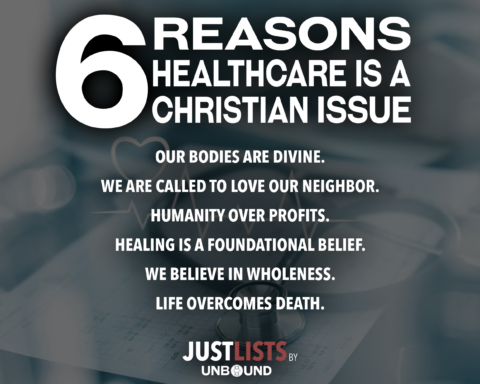
When it comes to healthcare, timing is key. It is obvious in the case of medical emergencies:
“How long was the brain deprived of oxygen?”
“How long did you do CPR?”
“How long until an OR will be available for surgery?”
But timing is just as key when it comes to prevention…which is why, for vulnerable families, access to primary care is so important. And that is why the Kentucky HEALTH waiver would be so devastating, so quickly.
Thankfully, the implementation of Kentucky HEALTH is currently blocked by the Federal Courts. The Centers for Medicare and Medicaid Services (CMS), a part of the Department of Health and Human Services (HHS), did not stand in the way of the waiver, but a federal judge rejected the (largely unchanged) waiver for the second time in late March. If he had not, then on April 1st most adults with Medicaid would have lost dental, vision, and non-emergency transportation services. That judge stated that HHS’ acceptance of the waiver was “arbitrary and capricious”.
___________________________________________
Having worked in community health in Louisville, it is painfully apparent that the Kentucky HEALTH waiver would negatively impact vulnerable individuals and families in the Louisville community.
___________________________________________
Why talk about this now, if the waiver was rejected? Because Governor Bevin has demonstrated that he will continue to try to push a state government agenda disconnected from the need to improve family health. Deforming the system, even as judges block the path. It is essential to recognize what could have happened—and what might still happen—if Kentucky HEALTH or something like it is passed, so that we can work to stop this bill from coming around again.
Having worked in community health in Louisville, it is painfully apparent that the Kentucky HEALTH waiver would negatively impact vulnerable individuals and families in the Louisville community. As a public health nurse working directly with patients, I can tangibly feel the consequences this legislation will have on Medicaid clients, on healthcare workers who serve the Medicaid population, and on health systems and infrastructures geared to work primarily through Medicaid. Those consequences include a loss of care for low-income families, inefficient care when problems are not caught in a timely manner, and bad incentives for patient and caregiver alike.
___________________________________________
Timely access to basic care helps to ensure that individuals and families have a higher quality of life [….] The time and money it takes to manage these basic services more than pays itself back by preventing future problems.
___________________________________________
Timely access to basic care helps to ensure that individuals and families have a higher quality of life. Easier access to primary care coverage (including medical, dental, AND vision) is a big part of this, so that patients have time to access information and education about their healthcare; make appointments to check on chronic conditions; obtain necessary medications to manage chronic conditions before these develop into acute and life-threatening problems…problems that are also far more expensive to treat. This is the point of primary prevention services. The time and money it takes to manage these basic services more than pays itself back by preventing future problems.
The Kentucky HEALTH bill would erect major barriers to primary care services. It has multiple requirements that are difficult for the Medicaid population to meet: not only premiums, but also 80 hours a month of work or community service requirements that must be documented each month. If an individual does not meet these obstacles, she becomes uninsured. If the obstacles are necessary to have insurance and the obstacles are very difficult to overcome, it follows that care is likely to be removed. Kentucky HEALTH will effectively remove access to care for those who need it most. This legislation creates multiple obstacles that make it extremely difficult for Medicaid recipients to stay ensured consistently. Not only this, but it will be a logistical nightmare within the public health infrastructures that serve the majority of our city’s Medicaid patients.
___________________________________________
[A]ccess must be the concern, first and foremost. But there is also a deeper, more ominous sensibility about this legislation that is deeply disturbing: the message that healthcare is a privilege to be earned, a ticket to be won.
___________________________________________
As a public health nurse, there are multiple components of this legislation that infuriate me, both personally and professionally. They don’t stand up to simple questions: will it be a positive move forward for health and well-being, for individuals and families? Will it work well for marginalized communities and those at highest risk of health disparities in our community? The answer is no, in each case, because it does not address the needs of Medicaid community members nor does it properly prioritize access to healthcare. And access must be the concern, first and foremost. But there is also a deeper, more ominous sensibility about this legislation that is deeply disturbing: the message that healthcare is a privilege to be earned, a ticket to be won.
If the bill had passed in its last attempt, we would currently have a “My Rewards” system in which individuals earn “virtual” dollars to help cover dental and vision care costs. Again, the message is that healthcare is linked to money, something to be bought and sold, directly connected to our unequal purchasing power. On July 1st, the community engagement process would begin across the state—t his stipulates that most adults need to work, volunteer, or be in school for 80 hours per month and submit documentation of these hours in order to maintain coverage. This notion of hyper-documentation, constant monitoring, implies a constant threat to take away folks’ insurance. If the bill ever really is passed, individuals and families will feel as though their access to care is consistently jeopardized.
In all of the above situations, under the Kentucky HEALTH waiver, healthcare is never exhibited as a right that all are encouraged to access. Indeed, the legislation does the opposite, and it will hurt and cause harm to those who are most vulnerable and need the most protection in our society.
Let’s take this example. What about the family I worked with recently who speak Kinyarwanda? They have Medicaid, but they don’t speak or write English. They have a little boy who is five years old. When he needs an eye exam to figure out if he needs glasses for school, how will the family figure out the mechanism by which to accrue these “virtual” dollars? Sure, there may be a relative who speaks English and can assist with their online Medicaid account. But they have to take two TARC buses (about an hour and a half each way) to get to the clinic to meet with the social worker to ask questions about these virtual dollars they need to get the eye exam for their boy to get glasses. Taking these buses costs money and time away from work, so this isn’t a good option either. When it comes down to it, a five-year-old boy just needs a pair of glasses—surely something that is worthwhile not just for the family, but for our society. Could there not be a more simple system for all involved?
Here’s another example. On May 1st, most adults with Medicaid will need to pay premium payments or they will risk losing coverage. Let’s assume that CMS notifies Medicaid recipients with a letter. Presumably the letter is in English with various notations on the back for languages available through CMS for interpretation. Let’s consider certain aspects of the Medicaid population—mental health comorbidities; illiterate in English; low-English proficiency; unstable housing; substance abuse. All of these would lead me to believe that the individual may never get the letter and, if he or she did, there would be a good chance he or she couldn’t or wouldn’t read it. Individuals and families served by Medicaid do have risk factors, and these need to be addressed with open access to high-quality healthcare. By creating barriers and removing access to care, we are exacerbating their health conditions. In sum, it is ethically and morally repugnant. We have knowledge of what a certain population needs to take care of their health; we are asking them to do very difficult tasks and almost promising this will deny them their coverage.
The Kentucky HEALTH proposition is cruel and unethical, and I would kindly welcome Governor Bevin and his colleagues to come to the clinic with me for one day, before they try again to install a new set of barriers to healthcare. One day. See the barriers to access that my colleagues already face every day. Meet our patients, your constituents, our Louisville friends and neighbors—and tell me then whether you think this is really a just way forward.
***
Author Bio: Kari Strange received her B.A. in Cultural Anthropology at Vassar College and her B.S.N. from the University of Louisville. She has worked in public health nursing for two years, developing a focus in sexual health, access to reproductive healthcare, and health disparities. Outside the clinic, her interests include theatre, yoga, hiking/backpacking, singing in the St. John UCC choir, and participating in local service endeavors. She is grateful for a loving community of family and friends in Louisville and beyond!






Unbound Social